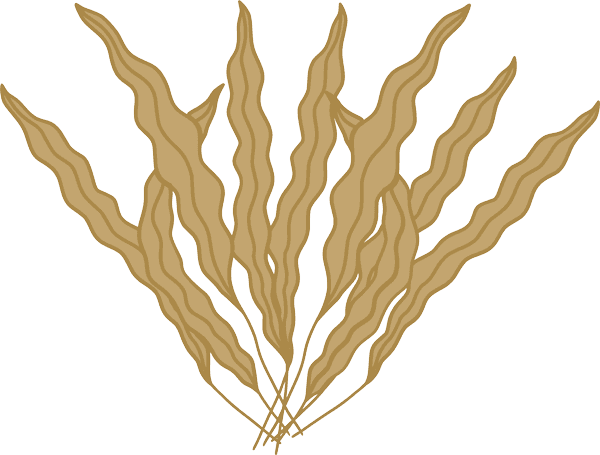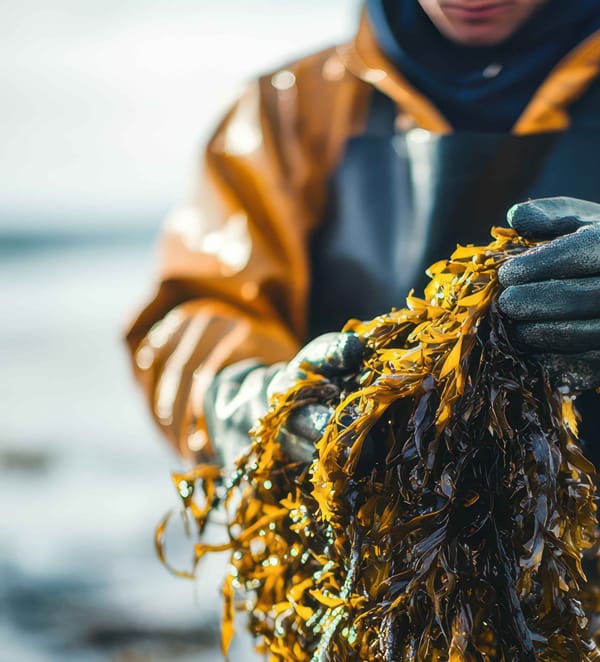
Seaweed Aquaculture Governance in Australia Report 2023
This report emphasises the significant role of governance in shaping Australia’s seaweed aquaculture industry.
Interested in permit & licensing information in other Australian states?
Find another state
The main government department(s) that provides guidance and information on establishing and operating a seaweed business in New South Wales:
Recreational seaweed harvesting is for personal use, not for commercial sale, like gardening, crafts, or small-scale consumption. If you are interested in understanding about licensing and permits for these activities
Seaweed farming and wild harvesting in NSW offer promising commercial and environmental opportunities but require careful adherence to regulations set by the NSW Department of Primary Industries. Land-based ponds often have a simpler approval process compared to ocean-based systems, while wild harvesting permits are tightly regulated to protect native marine vegetation and ecosystems.
Note: NSW have specific terminology that you will need to understand. For example; wild seaweed harvest and collection is known as marine vegetation collection, beach-cast is known as seaweed wrack (this is independent of any wrack species) and offshore may mean not an estuary.
COMMERCIAL SEAWEED WILD HARVEST & AQUACULTURE
Recreational Seaweed COLLECTION

Speak with the department as a first step, as NSW are not currently providing commercial wild harvest licenses (as at March 2025).
If you are collecting seaweed wrack (beach-cast) for commercial purposes, you will need to submit a Marine Vegetation Collection for Commercial Purposes permit application.
The application requires you to provide information about the proposed species type, specific collection location(s), collection quantity and collection methods. You will also be required to provide a map(s) showing the proposed collection sites as well as written confirmation that you have completed the following:
You must submit a payment receipt for the associated fees together with the application. Applications take between 4 to 6 weeks to be assessed. Only complete applications will be accepted.
This fact sheet provides more information about the process
For any commercial seaweed wrack trials, a Section 37 permit is required.
Phone: 1300 726 488
Email: commercialfisheries@dpi.nsw.gov.au
The production of fish and aquatic plants for food, fish stocking and the ornamental trade in either pond systems, pen systems within ponds, or tank aquaculture systems.
To become a land-based aquaculture producer, you will need a land-based aquaculture permit such as:
Class C – allows the activity of extensive aquaculture (no food or nutrients are provided), such as finfish, crustacea or oyster nursery.
To apply for a permit:
The NSW Land Based Sustainable Aquaculture Strategy (LBSAS) 2021f provides more information about starting up a land-based aquaculture business in New South Wales
Marine aquaculture is the cultivation of molluscs, fish or marine vegetation on submerged Crown land (deep marine waters) along the NSW coast.
To start a marine aquaculture farm, you will need the following:
To apply for a new aquaculture lease:
Go to the Marine applications and information kits which provides a range of resources and information you will need to apply for a lease for marine waters.It is recommended that you speak to someone in DPIRD Aquaculture who can talk you through the options.
Once you have identified a potentially suitable area, you will need to submit an expression of interest (EOI) for that area. If the EOI is supported, the proposed lease will be offered via a competitive allocation process (public tender), in which you will need to submit a tender for the proposed lease.
The expression of interest form (EOI) carries no fee and must:
The NSW Marine Waters Sustainable Aquaculture Strategy (MWSAS) 2018 will provide more information on the process involved in applying for a marine waters lease in New South Wales.
To apply for a new aquaculture permit for marine waters aquaculture:
A Section 37 permit is required for any activity that involves taking or possessing fish or marine vegetation that would otherwise be unlawful under the Fisheries Management Act 1994. This includes any aquaculture related activity such as broodstock collection.
A Section 37 Miscellaneous Permit is required for any aquaculture trials
For more information about the process and how to apply go to the NSW Department of Primary Industries and Regional development
Locked Bag 1
Nelson Bay NSW 2315
P: 02 4916 3900
E: aquaculture.administration@dpird.nsw.gov.au or aquaculture.management@dpird.nsw.gov.au
We have included links to some resources that are relevant to this state, but additional publications can be found in Seaweed Central, so please search the Knowledge Hub.

This report emphasises the significant role of governance in shaping Australia’s seaweed aquaculture industry.
We have included links to the key legislation for this state, but additional regulations may apply depending on the type of seaweed activities or operations you are undertaking.

What is recreational harvesting and do I need a licence?
Seaweed found on beaches is not considered food-safe as it is impossible to predict how long the seaweed has been beach-cast or whether it may have come into contact with contaminants.
Find more information to help navigate permitting and licensing for Commercial Seaweed businesses in Australia